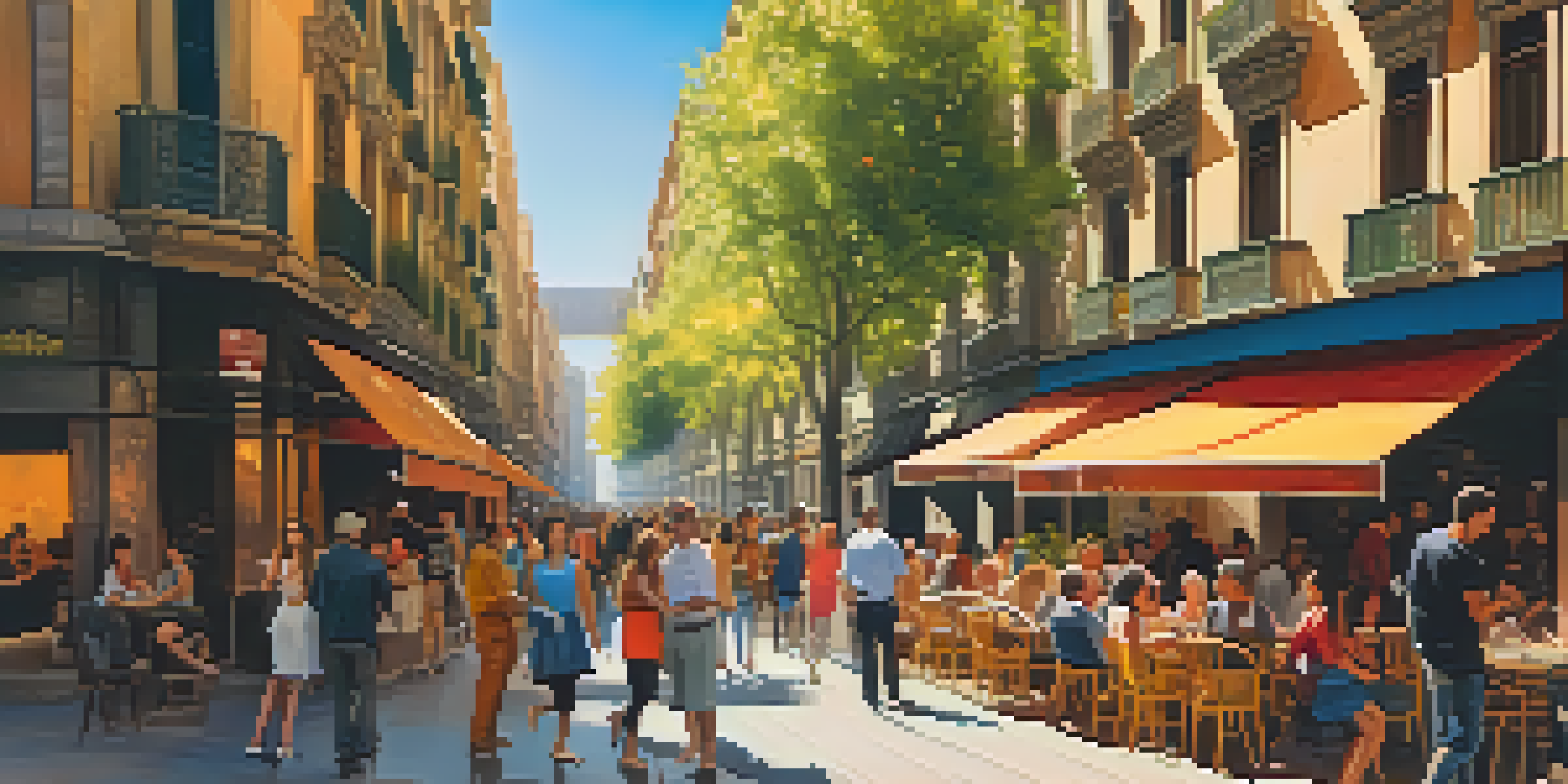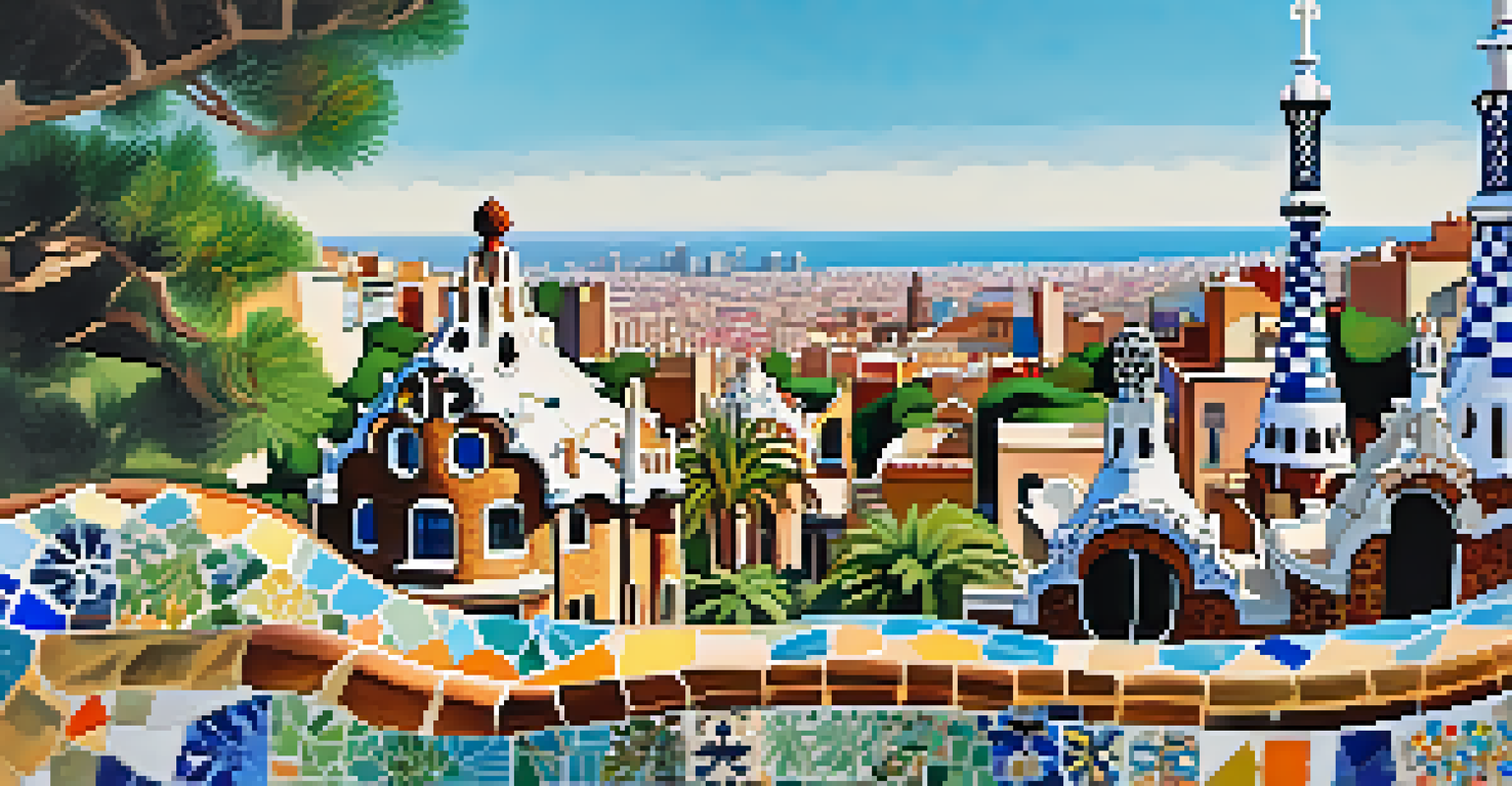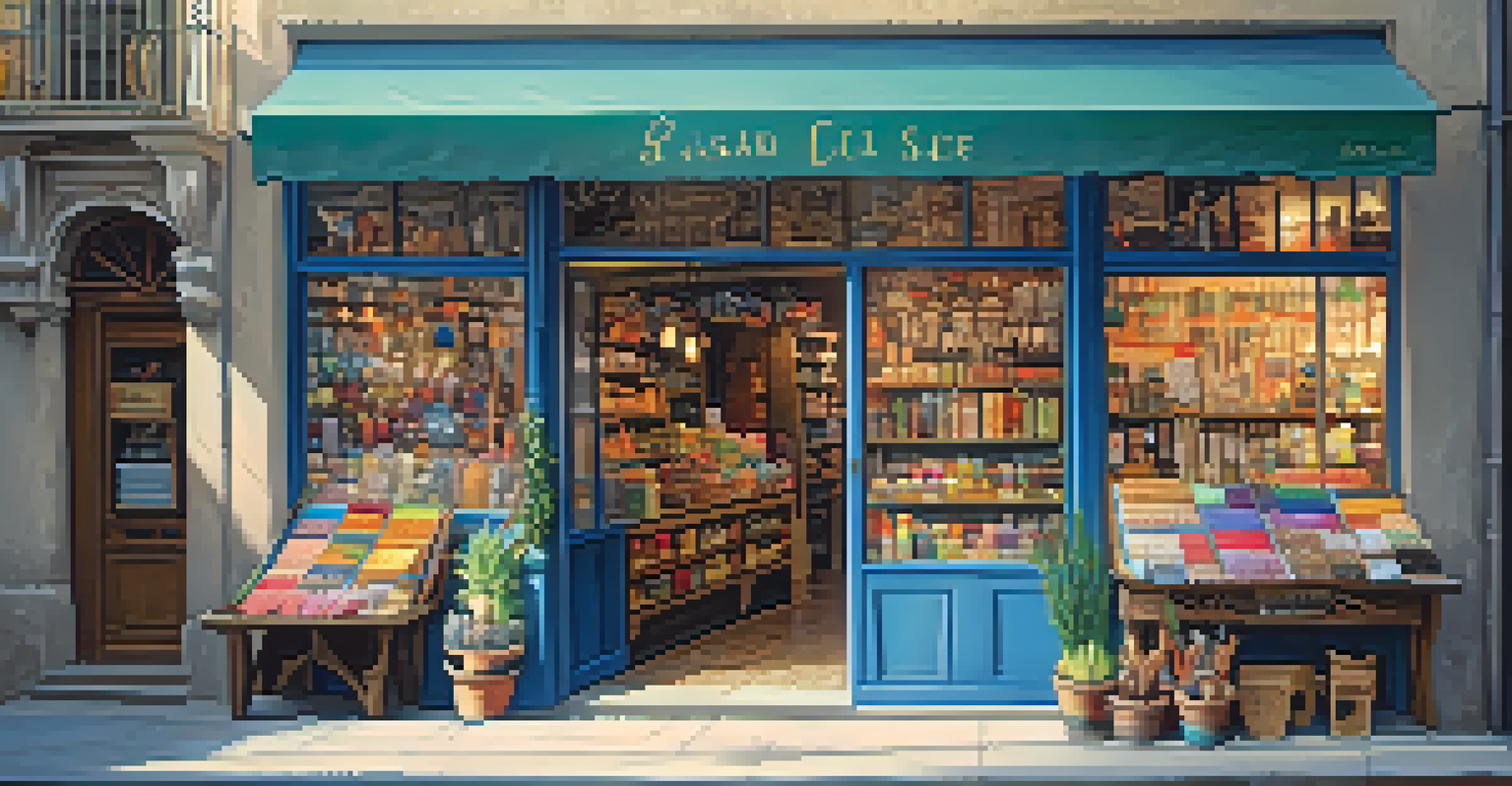Evaluating the Economic Impact of Urban Tourism in Barcelona

Understanding Urban Tourism in Barcelona
Urban tourism refers to the phenomenon where visitors flock to cities to experience local culture, attractions, and lifestyle. In Barcelona, this has become a significant part of the city's identity, drawing millions each year. The vibrant streets, stunning architecture, and rich history make it a magnet for tourists from around the globe.
Tourism is one of the world's largest industries and it has the power to shape our cities and communities, impacting both the economy and social fabric.
With its unique blend of Gothic and modernist architecture, including Gaudí's masterpieces, Barcelona offers experiences that are hard to find elsewhere. This tourism not only brings excitement and diversity to the city but also has a profound impact on its economic landscape. Understanding this phenomenon is crucial for evaluating its effects on the local economy.
As a city that thrives on its tourist appeal, Barcelona's economy is intrinsically linked to urban tourism. This connection shapes everything from employment opportunities to the availability of services, making it essential to delve deeper into the implications of this relationship.
Economic Contributions of Urban Tourism
Urban tourism serves as a vital economic engine for Barcelona, contributing significantly to the city's GDP. The influx of tourists leads to increased spending on accommodations, dining, and entertainment. This, in turn, creates jobs and stimulates business growth in various sectors, from hospitality to retail.

Moreover, the economic benefits extend beyond immediate monetary gains. Local businesses often thrive due to the steady stream of visitors, allowing them to expand and innovate. For example, small artisanal shops and restaurants can cater to a diverse clientele, enhancing the city’s cultural fabric while boosting their economic stability.
Urban Tourism Drives Economic Growth
Barcelona's urban tourism significantly boosts its economy by creating jobs and increasing spending in various sectors.
Tourism also generates tax revenue, which local governments can reinvest in public services and infrastructure. These funds are essential for maintaining the city's charm and ensuring it remains a welcoming destination for future visitors.
Job Creation and Employment Opportunities
The tourism sector in Barcelona is a significant source of employment, offering diverse job opportunities across various fields. From hotel staff to tour guides, many residents depend on tourism for their livelihoods. This sector provides both entry-level positions and skilled jobs, making it accessible for a wide range of job seekers.
Sustainable tourism is about making a positive impact on the places we visit, ensuring that we protect the environment and support local economies.
In addition to direct employment, tourism-related activities spur job creation in ancillary services like transportation, cleaning, and event management. This ripple effect means that the economic impact of urban tourism reaches far beyond the surface. As more visitors arrive, the demand for these services continues to grow.
However, it's essential to consider seasonal fluctuations in tourism, which can lead to job instability. While many workers enjoy peak season employment, they may face uncertainty during quieter months, highlighting the need for sustainable tourism practices that can help stabilize the job market.
Impact on Local Businesses and Entrepreneurship
Urban tourism can significantly boost local businesses, providing them with a steady stream of customers. Restaurants, cafes, and shops often see increased foot traffic from tourists, leading to higher sales and profits. This economic boost can be a lifeline for smaller establishments that rely heavily on seasonal visitors.
Moreover, the vibrant tourism scene encourages entrepreneurship by inspiring locals to start their own businesses. Many residents capitalize on the tourist influx by offering unique experiences, such as guided tours or local cuisine classes. This entrepreneurial spirit not only enriches the local economy but also enhances the overall visitor experience.
Local Businesses Thrive from Tourism
The influx of tourists enhances foot traffic for local businesses, yet it also poses challenges like rising costs.
However, the relationship between tourism and local businesses can be a double-edged sword. While tourism provides opportunities, it can also drive up rent and operating costs, making it challenging for some businesses to thrive. Striking a balance between supporting local enterprises and managing tourism growth is crucial for a sustainable economic future.
Challenges of Urban Tourism in Barcelona
Despite the economic benefits, urban tourism in Barcelona also brings several challenges. Overcrowding is a significant concern, particularly in popular areas like La Rambla and Park Güell. This can lead to a diminished experience for both tourists and locals, as the charm of the city becomes overshadowed by throngs of visitors.
Additionally, the rising cost of living in tourist-heavy neighborhoods can displace long-term residents. As property values and rental prices soar, many locals find it increasingly difficult to afford their homes. This situation raises important questions about the social sustainability of urban tourism and its impact on the community.
Addressing these challenges requires careful planning and management. Implementing policies that promote responsible tourism can help mitigate negative effects while still allowing the city to reap the economic benefits of urban tourism.
Sustainability in Urban Tourism Practices
Sustainability is becoming a critical focus in the realm of urban tourism, as cities like Barcelona seek to balance economic growth with environmental and social responsibility. Sustainable practices can include promoting eco-friendly transportation, supporting local businesses, and encouraging tourists to engage with the community respectfully. This holistic approach can enhance the overall experience for visitors while protecting the city's unique character.
Barcelona has initiated various programs aimed at fostering sustainable tourism, such as limiting the number of tourist accommodations and encouraging off-peak travel. These efforts not only help preserve the city's resources but also contribute to the well-being of its residents. By prioritizing sustainability, Barcelona can ensure its tourism sector remains vibrant without compromising the quality of life for its inhabitants.
Sustainability is Key for the Future
Embracing sustainable tourism practices is crucial for Barcelona to balance economic benefits with the well-being of its residents.
Ultimately, embracing sustainability in urban tourism is about creating a win-win situation where both visitors and locals can thrive. As cities continue to navigate the complexities of tourism, Barcelona's approach can serve as a valuable model for others to follow.
Future Prospects for Urban Tourism in Barcelona
Looking ahead, the future of urban tourism in Barcelona holds both promise and uncertainty. As travel trends evolve, the city must adapt to changing visitor preferences while maintaining its allure. This adaptability will be crucial for ensuring that tourism continues to contribute positively to the economy and community.
Emerging technologies and digital tools can play a significant role in shaping the future of urban tourism. For instance, virtual reality experiences might allow potential visitors to explore the city before they arrive, influencing their travel decisions. Additionally, smart city initiatives can enhance the visitor experience by providing real-time information and personalized recommendations.

Ultimately, the trajectory of urban tourism in Barcelona will depend on how well the city balances tourism's economic benefits with the needs of its residents. By fostering a collaborative approach between stakeholders, Barcelona can pave the way for a thriving, sustainable tourism sector that benefits everyone.